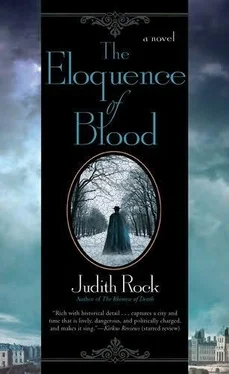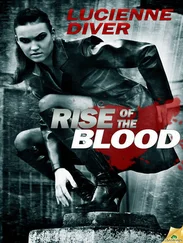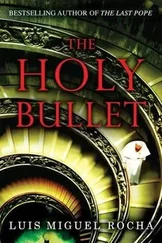Judith Rock - The Eloquence of Blood
Здесь есть возможность читать онлайн «Judith Rock - The Eloquence of Blood» весь текст электронной книги совершенно бесплатно (целиком полную версию без сокращений). В некоторых случаях можно слушать аудио, скачать через торрент в формате fb2 и присутствует краткое содержание. Жанр: Исторический детектив, на английском языке. Описание произведения, (предисловие) а так же отзывы посетителей доступны на портале библиотеки ЛибКат.
- Название:The Eloquence of Blood
- Автор:
- Жанр:
- Год:неизвестен
- ISBN:нет данных
- Рейтинг книги:5 / 5. Голосов: 1
-
Избранное:Добавить в избранное
- Отзывы:
-
Ваша оценка:
- 100
- 1
- 2
- 3
- 4
- 5
The Eloquence of Blood: краткое содержание, описание и аннотация
Предлагаем к чтению аннотацию, описание, краткое содержание или предисловие (зависит от того, что написал сам автор книги «The Eloquence of Blood»). Если вы не нашли необходимую информацию о книге — напишите в комментариях, мы постараемся отыскать её.
The Eloquence of Blood — читать онлайн бесплатно полную книгу (весь текст) целиком
Ниже представлен текст книги, разбитый по страницам. Система сохранения места последней прочитанной страницы, позволяет с удобством читать онлайн бесплатно книгу «The Eloquence of Blood», без необходимости каждый раз заново искать на чём Вы остановились. Поставьте закладку, и сможете в любой момент перейти на страницу, на которой закончили чтение.
Интервал:
Закладка:
He sat down on the board. Did this austere nest have anything to tell him? His eyes went to the window. Gilles and his friend could not have come and gone that way. The window was too high to reach without something to stand on, and too narrow to go through, even if reached. He got to his feet, already glad to be off the bed, and took the candle from its iron ring. Huddling his cloak around him, Charles opened the low door and looked out. This guest cell was far away from the friars’ cells, he guessed, nearer the front court and worldly comings and goings. But it wasn’t far from the church. If the church was not only for the friars, but also a parish church, then it would have a door on or near the street. Germain Morel had heard Gilles thanking God that his friend lived “close to the house.” The Capuchin house, Charles thought he’d probably meant. Perhaps Gilles had simply slipped out of the church door in the night and gone to visit his friend. Charles took the candle out of its holder and stole out of the cell into the dense silence and darkness of the house.
He found the door into the friars’ choir and went from there down into the nave. Shielding his candle flame, which was writhing and dancing from the drafts under doors and around windows, he walked the length of the nave to the wide west door. It opened easily, into a courtyard smaller than the one he’d entered by. The falling snow was blinding, as heavy a snow as he’d ever seen, but as it swirled and shifted in the wind, he glimpsed a gate that had to lead to the rue St. Honore.
Charles withdrew into the church again and leaned all his weight on the door to shut it against the wind. Now he knew for certain that leaving and returning to the enclave at night was possible. All Brion would have had to do was avoid coming and going during the midnight office. And if, by some chance, he was discovered in the passage between the church and his cell, he could easily claim prayer as his excuse. So going out to the friend who lived nearby was possible. And surely more pleasant than the bare, cold guest cell. How, though, to find out where the friend lived?
His candle was out now, but Charles found his way back to his cell with only one false turn and huddled on the straw-covered board, wrapped in his cloak and the blanket. He tried to think out what to do next. He was certain that the Capuchin superior knew who Brion’s friend was. But he doubted he could make any more headway through the silence of these famously silent monks. He would have to scrutinize everyone who came to Prime and early Mass and afterward try to talk to any young men. Or at least follow the one who mostly closely fit the bare description Morel had given him of Brion’s friend. Shivering and dissatisfied, Charles fell uneasily asleep.
He woke what seemed like hours later with his left shoulder aching with cold and shrieking its disapproval of the board. He sat up, looking for any sign of light around the cell’s window, but there was only thick darkness. The wind seemed to be less, though. Telling himself that the cell was at least out of the weather and no worse than places he’d slept in the army, he thought about going again to the chapel to see if it was time for the midnight office, though he hadn’t heard any bell. But before he could make up his mind, a bell’s clanging split the night.
Thinking that such frantic clanging had to be more than the signal for prayer, Charles leaped up and went into the passage. He had no way to relight his candle and could see nothing. When the bell fell silent, he heard running feet and started toward the sound, feeling his way along the passage wall. Moving light sprang up ahead of him, and a line of silently hurrying friars carrying lanterns, a ladder, and enormous buckets crossed the passage and disappeared through the door he had entered when he first arrived. Charles ran to the door, but the friars were already pushing through the court’s deep snow. The snow had nearly stopped falling and the big gates stood open. Beyond them and along the street to the left, an orange glow lit the night. Fire. And all too near.
Remembering that Lieutenant-General La Reynie had once told him that the Capuchins were the city’s firefighters, Charles made his way into the street to offer help. A gang of robed and hooded Capuchins had just come through a smaller monastery gate, pushing and pulling what looked like a monstrous wheeled pot toward the fire. Others with shovels were clearing snow as fast as they could in front of the wheels. Silhouetted against the blaze, people were gathering along the street. Charles grabbed part of a rope and threw his weight into dragging the wheeled water cistern. He could hear the roar of the flames now and saw that the fire was in the ground floor of a modest house standing alone, between two vacant lots. A weeping, wild-haired woman stood in the street, struggling in a man’s hold.
When the cistern was close enough, the friars formed lines, filling buckets and passing them forward to the flames. Other friars waited to run the empty buckets back to the cistern. As Charles moved to take a place in the bucket-passing line, he passed the struggling woman, who held a mass of something white against her chest.
“But the new lace, the ribbons!” she sobbed. “Madame de Fiennes is coming tomorrow-” Then he heard an anguished shriek. “The mules, ah, bon Dieu, the mules!”
Charles spun around. Mules? Trapped in a burning stable behind the shop?
“No one is coming tomorrow!” the man shouted at the woman. “There will be nowhere to come to! Never mind the stupid pink mules; you are not supposed to sell them, anyway. No more than you are supposed to work by candlelight and burn the shop down!” He pulled her toward the gates of a townhouse farther down the street. “See, the Fiennes maidservants are at their gate. Come and let them salve your burns.”
Ah, Charles thought, enlightened, pink mules. Thanks to his mother, he knew that mules were a woman’s backless slipper. The sobbing woman was a marchand de mode, then, a seller of fashion accessories. Though why she wasn’t supposed to sell mules, he had no idea.
A roar and a crash came from the burning shop, and one of the friars called from the front of the line, “A ceiling beam’s come down!”
For a bizarre moment, Charles thought that burning white birds were fluttering toward him, but the birds were fragments of the shop’s lace and linen carried on the fire’s heat and vanishing into cinders as he watched.
A shrill, terrified cry above him made him stumble backward, craning his neck. A boy of eight or nine years was crouched on a window ledge above the shop door, weeping with terror and staring down into the maelstrom of smoke, water, and running people below him. At his back, a wall of flame reared itself where the beam had collapsed into the ground-floor room.
One of the friars came running with a ladder and tried to lean it against the building, but a sudden draft sent tongues of fire reaching through the shop door and he jumped back, cinders burning holes in his robe and catching in his hair.
“The boy must jump,” Charles called to the friar with the ladder. He thrust his bucket at someone and hurried as close to the building as he could. “Mon brave,” he called up to the child, “hold on to the casement and stand up.” He turned to the young and sturdy-looking friar. “Do you have rope?”
The friar looked wildly around, put his ladder on the ground, and ran. Within a few breaths, he was back with a coil of rope.
Charles took it and shouted up to the child, “Catch the rope and hold it as tightly as you can!”
But the little boy was clinging to the window casement with his eyes shut, too frozen with terror to move. Behind him, flames rose again from the ground floor, and tongues of flame licked out of the shop door.
Читать дальшеИнтервал:
Закладка:
Похожие книги на «The Eloquence of Blood»
Представляем Вашему вниманию похожие книги на «The Eloquence of Blood» списком для выбора. Мы отобрали схожую по названию и смыслу литературу в надежде предоставить читателям больше вариантов отыскать новые, интересные, ещё непрочитанные произведения.
Обсуждение, отзывы о книге «The Eloquence of Blood» и просто собственные мнения читателей. Оставьте ваши комментарии, напишите, что Вы думаете о произведении, его смысле или главных героях. Укажите что конкретно понравилось, а что нет, и почему Вы так считаете.












